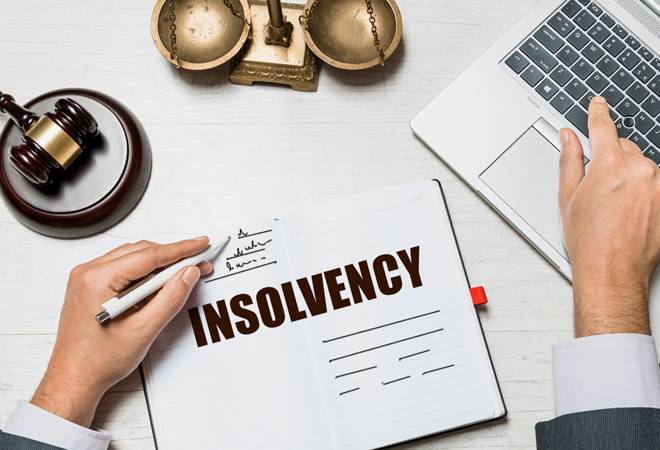Little Known Questions About Insolvency Practitioner.
Little Known Questions About Insolvency Practitioner.
Blog Article
The Basic Principles Of Insolvency Practitioner
Table of ContentsThe Best Guide To Insolvency PractitionerInsolvency Practitioner Can Be Fun For AnyoneRumored Buzz on Insolvency PractitionerAll About Insolvency PractitionerInsolvency Practitioner - An OverviewInsolvency Practitioner Fundamentals ExplainedThe Ultimate Guide To Insolvency Practitioner
Bankruptcy is when obligations are better than the worth of the company, or when a borrower can not pay the financial debts they owe. A business can end up being insolvent due to a number of situations that lead to poor capital. When confronted with bankruptcy, a business or person can speak to creditors straight and restructure debts to pay them off.
Company proprietors might contact creditors straight and restructure financial debts into more manageable installments. Creditors are typically open to this strategy because they desire to be repaid and prevent losses, even if the settlement is on a postponed schedule.
The owner develops a proposal describing how the financial obligation might be reorganized utilizing expense reductions or other prepare for assistance. The proposition shows creditors exactly how the service may produce adequate cash flow for rewarding procedures while paying its financial debts. Typically, a forgiven financial debt might be considered income by the Internal Earnings Solution (IRS).
Insolvency Practitioner Fundamentals Explained
When a service has actually to pay raised rates for items and solutions, the business passes along the price to the consumer. As opposed to pay the enhanced price, numerous consumers take their organization elsewhere so they can pay much less for a services or product. Shedding customers leads to shedding income for paying the business's financial institutions.
The service might wind up paying large amounts of money in damages and be incapable to continue operations. When procedures stop, so does the business's earnings. Absence of revenue results in unsettled expenses and lenders asking for cash owed to them. Some companies become insolvent because their goods or solutions don't advance to fit customers' changing requirements.
How Insolvency Practitioner can Save You Time, Stress, and Money.
Costs surpass earnings and bills stay unpaid. Types of insolvency include cash-flow bankruptcy and balance-sheet insolvency. Cash-flow insolvency takes place when a firm has the assets to cover their financial obligations but they remain in the wrong kind, such as property as opposed to fluid funds. Balance-sheet bankruptcy, on the other hand, indicates an absence of possessions in any type to cover debts.
The IRS states that an individual is insolvent when the complete liabilities exceed overall assets. Insolvency Practitioner. A bankruptcy, on the various other hand, is a real court order that depicts exactly how a bankrupt person or company will settle their financial institutions, or just how they will market their assets in order to make the settlements
Our Insolvency Practitioner Diaries
When a company or person is financially troubled, they can not fulfill their monetary responsibilities. Insolvency is not the exact same as bankruptcy, although a business that has ended up being bankrupt may submit for bankruptcy. Insolvency is the state of not being able to pay your commitments while bankruptcy is a lawful process pop over to this web-site to release your financial debts.
Understanding the factors that can cause insolvency, such as overspending, can help you stop bankruptcy and its repercussions.
How Insolvency Practitioner can Save You Time, Stress, and Money.
It is popular that supervisors and policemans of firms (and supervisors of minimal obligation business) owe fiduciary duties to their companies and their investors (or participants). These fiduciary obligations are defined by state statutes and, though there are variations from state to state, they typically consist of an obligation of loyalty and a duty of care.
The task of treatment requires visit here directors and officers to work out persistance, to make enlightened decisions, and to act in good faith to ensure that their actions remain in the most effective passion of the business. Though beyond the extent of this discussion, some states allow these obligations to be limited either by so noting in the business papers or abiding by other requirements.
How Insolvency Practitioner can Save You Time, Stress, and Money.

Be careful regarding giving investors favoritism at the expenditure of financial institutions (e.g., authorizing and funding a dividend or a stock redemption). Take care regarding advantageous treatment in between classes of investors. Clear up efforts to learn all the truths before taking a certain strategy; supervisors need to really believe that any kind of decisions made are in the finest rate of interests of the company in its whole (i.e., choices will be evaluated in knowledge due to the effect of such actions on the firm).
In any kind of bankruptcy or bankruptcy case, settlements made to particular financial institutions at the expenditure of various other creditors can be clawed back, specifically if there is some connection between the firm and the financial institution. Think about suggesting at a yearly shareholder meeting (or any various explanation other conference of shareholders) a resolution verifying that all prior company decisions and actions taken by the directors and officers of the firm were taken in good confidence after an exercise of practical treatment.
7 Easy Facts About Insolvency Practitioner Described
Completely divulge any type of personal or service relationships with parties on the other side of transactions involving the company to prevent the look of a problem of rate of interest. In reviewing prospective fund elevating transactions or a sale of assets of the troubled company, be mindful that these transactions might be inspected later on because of any type of succeeding expansion of directors' fiduciary obligations to include financial institutions.
Report this page